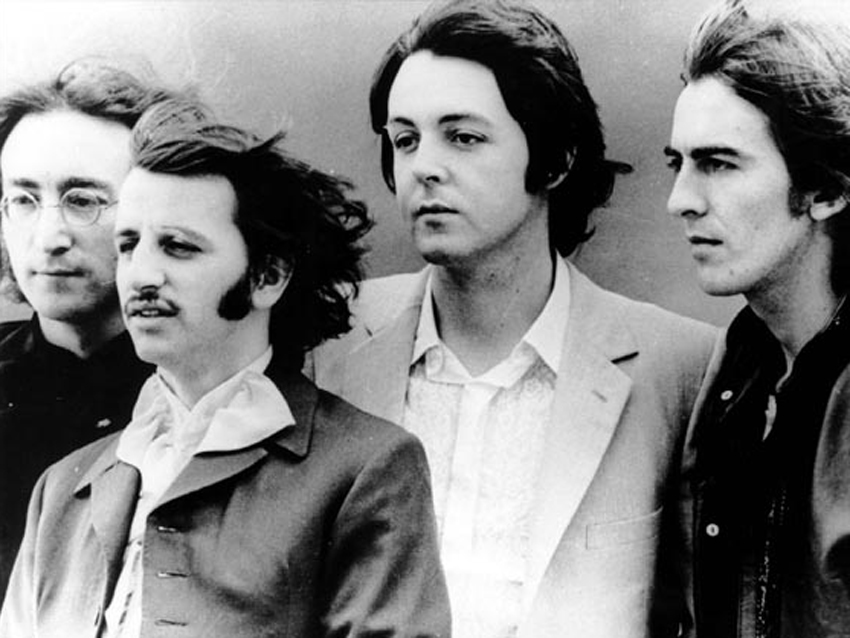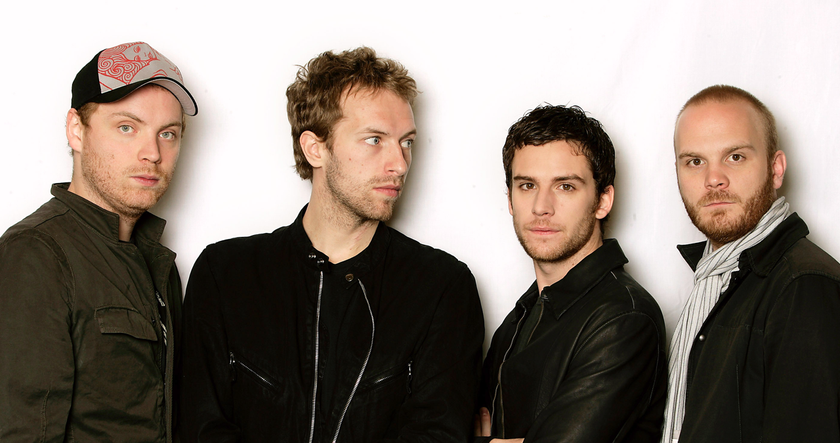
Yesterday MusicRadar reported on the unreleased version of The Beatles' Revolution 1 'take 20' that surfaced on the Internet.
It's a fascinating track, one which bridges the gap between the released versions of the mid-tempo, acoustic-driven Revolution 1 and the tape-looped experimentation of Revolution 9. The only question is this: Is it real or a modern-day mash-up?
Noted Beatles historian Richie Unterberger, author of the book The Unreleased Beatles: Music And Film, believes it's the real deal, although he does say that without access to the original EMI/Abbey Road tape it's impossile to determine the track's authenticity with absolute certainty.
Trains passing by
"With technology these days, it certainly seems theoretically possible to manufacture and overdub some effects that are heard on the circulating version," says Unterberger. "A particular feature of this circulating recording is the weird, unclassifiable flowing and ebbing swell of a note that occurs throughout - it's what I call a 'train-passing-by' sound. It seems like it could be an electronically manipulated effect or perhaps even a distorted snatch of a harmony vocal."
"The Beatles were coming up with all kinds of unpredictable and futuristic effects in the studio, especially in their final years" Richie Unterberger, Beatles historian
Even so, Unterberger believes the sounds were indeed made by The Beatles themselves. "When I hear them, they don't sound impossible to me that they could have been part of the original recording - The Beatles were coming up with all kinds of unpredictable and futuristic effects in the studio, especially in their final years."
So too, Unterberger is of the mind that the little bits of spoken chatter on the recording were from the mouth of none other than John Lennon. "It sounds like him, both in the voice and the sense of wacky humor, though I guess again it's possible a very good actor does this and we're all being fooled."
And what of engineer Geoff Emerick's famous words "Take 2," which can be heard uttered before the released version and on the unreleased 'take 20,' what does Unterberger make of them?
Get the MusicRadar Newsletter
Want all the hottest music and gear news, reviews, deals, features and more, direct to your inbox? Sign up here.
"Often The Beatles would do the backing tracks on take 1 or take 2 and do a lot of overdubs. So when it's called 'take 18,' or in this case 'take 20,' it probably was from take 2. The Beatles loved hearing Geoff say those words and they wanted to make sure they got on the record. As a band, they were always very good at taking advantage of keeping what other groups would throw away."
Other 'Holy Grail' tracks - Carnival Of Light
One of the most famous unreleased 'Holy Grail' Beatles tracks is Paul McCartney's avant-garde Carnival Of Light. a sound collage that the 'softer' Beatle convinced the others to take part in for an event at London's Roundhouse Theatre in 1967.
Although McCartney has lately been pushing for its release (he tried unsuccessfully to include it on The Beatles Anthology, Vol 3 and was told by George Harrison that he "didn't like it"), it has gathered dust since its creation.
The experimental recording was made by McCartney in late January 1967 and played to attendees at The Roundhouse. The events on 28 January and 4 February were advertised with flyers including the words, "with music by Paul McCartney and Delta Music Plus."
"People assume that John was the real progressive guy in the band, but he and Paul were very much the same person" Ritchie Unterberger
"My guess is that none of the people present even knew what they were hearing," says Unterberger, who cites another book, Ian Peel's The Unknown Paul McCartney: McCartney And The Avant-Garde, when discussing the track.
"Apparently, Paul went to the studio and got the other guys to help him out, but nobody really knew what he was up to. That brings up the funny contrast: People assume that John was the real progressive guy in the band, but he and Paul were very much the same person, though not always at the same time."
The fact that Carnival Of Light still hasn't been issued on any Beatles recordings leads Unterberger to believe that it's "pretty far out, and it might be disappointing to some fans if they heard it now. Paul never pushed for it to be on record during the Beatles' career. And a year later he was arguing with John Lennon about whether to put Revolution 9 on 'The White Album.'"
The biggest 'Holy Grail' - 27 minutes of Helter Skelter
Again, this one lept from the fertile mind of Paul McCartney. On 18 July 1968 The Beatles recorded three versions of Helter Skelter, a song McCartney had been tinkering with for a few months.
"At first, the song was very folk-blues," says Unterberger. "On June 11 of that year, they were recording Blackbird in the studio, and in-between takes McCartney drifts into other songs, the basis of Helter Skelter being one of them. It wasn't the all-out rocker that we know today - that idea mushroomed over a period of time.
"When they recorded what they described as 'rehearsals' of the song in July, they jammed on it and it was very bluesy and mid-tempo. There's a 12-minute jam, four minutes of which was included on Anthology 3. The reason why they edited it down was probably because The Beatles weren't known as big jammers - that four minutes might be the most exciting section."
Despite their lack of jamming expertise, or perhaps because of it, the 27-minute Helter Skelter 'take 3' is the unreleased track Unterberger is most often asked about. "I haven't heard it," he says. "Mark Lewisohn (author of The Beatles: Recording Sessions) is the only journalist who has. From what I know, it's not some rocking, crazed version with tons of soloing; it's probably the same mid-tempo kind of thing you hear on Anthology 3, but much, much longer. My guess is, it's not very exciting."
But Unterberger adds: "Well, it might be exciting because you know it's The Beatles. If it were any other band, it might not be something you'd want to hear."
Joe is a freelance journalist who has, over the past few decades, interviewed hundreds of guitarists for Guitar World, Guitar Player, MusicRadar and Classic Rock. He is also a former editor of Guitar World, contributing writer for Guitar Aficionado and VP of A&R for Island Records. He’s an enthusiastic guitarist, but he’s nowhere near the likes of the people he interviews. Surprisingly, his skills are more suited to the drums. If you need a drummer for your Beatles tribute band, look him up.

“If it wasn’t for that song, that would have been the end of the band”: How one track’s sudden gear-switch led Coldplay into their imperial phase

“He was like, ‘You’ve got it all wrong, man": Mumford & Sons reveal what Neil Young told them about the way they were approaching their live shows and album recordings









